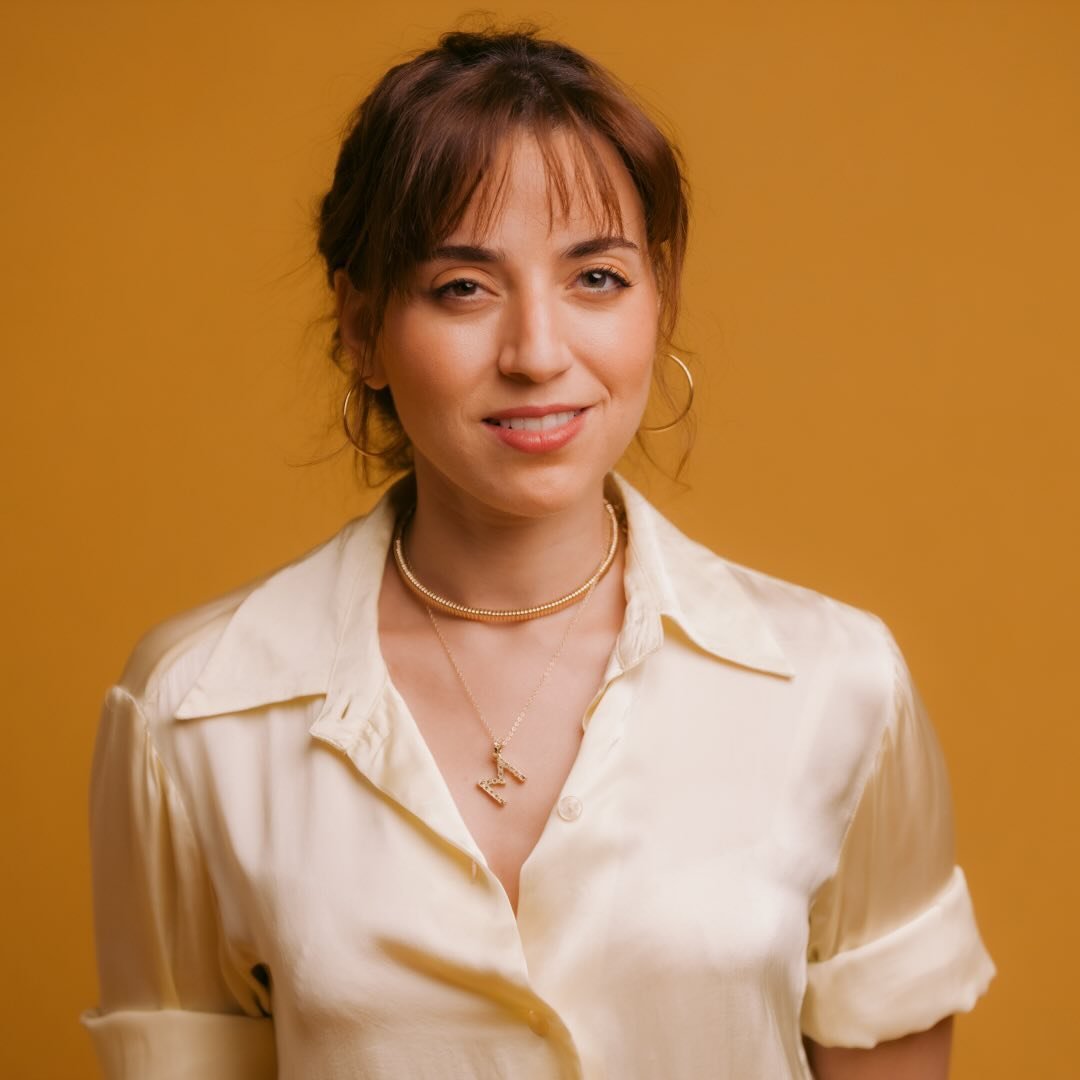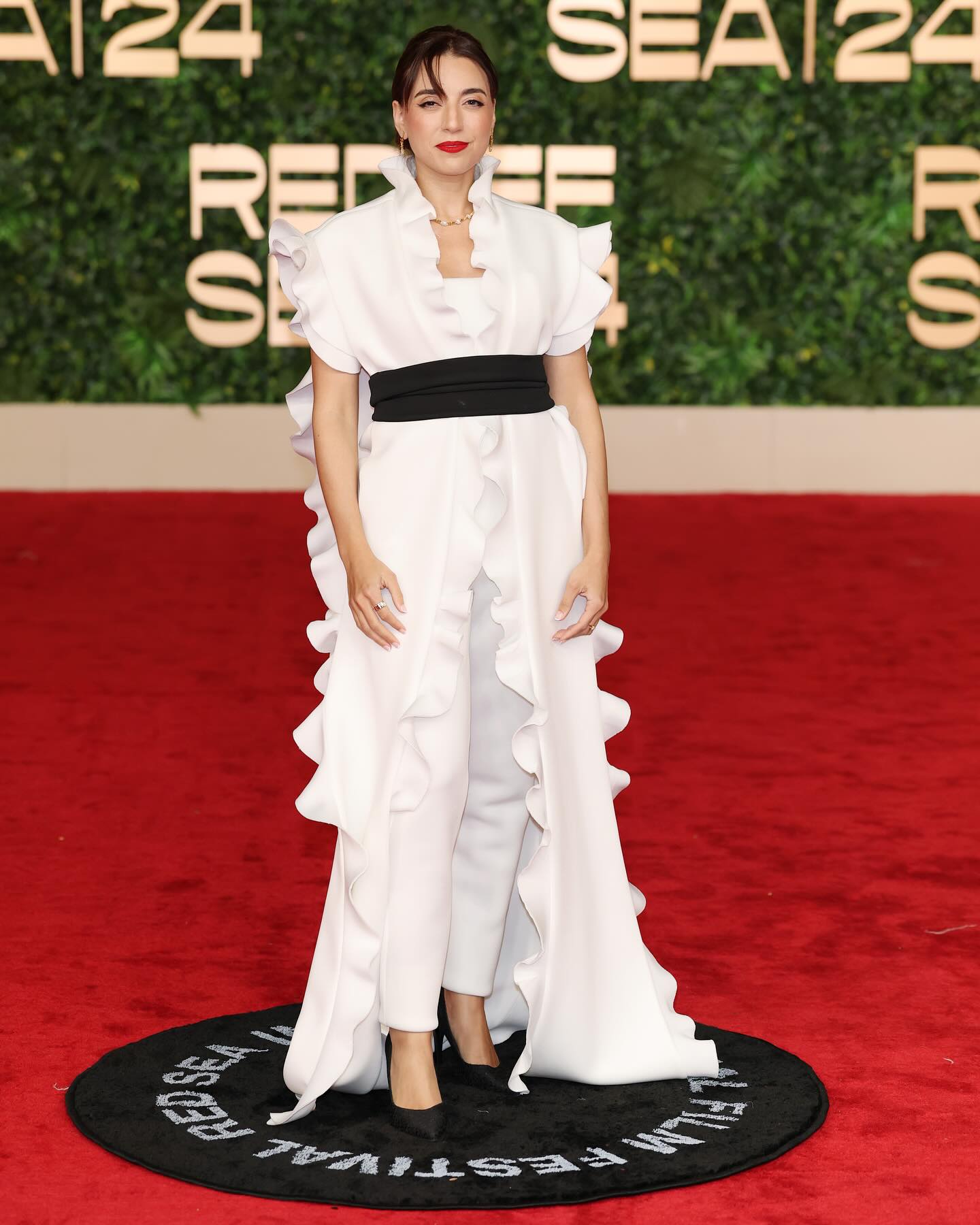A Saudi author and filmmaker with a passion for travel and storytelling, Maram Taibah has had various artistic experiences that have enhanced her path and brought her closer to people in their little details until she paints the whole image.
Anyone who reads her biography must be inspired, not only by the unique topics she addressed but also by her direct treatment style, which captured the hearts of everyone who saw her film or read her account. With a dash of sweet, girlish, youthful fancies, she is keen to transform reality into a captivating tale.
Interviewed by: Rima Khairbak

Maram Taibah is a creative Saudi individual who enjoys storytelling and travel. What, in your opinion, do literature and film stand for, and how did you come to adore them?
I began writing at an early age and learned the intricacies of the narrative technique by reading stories and watching films. Then I advanced to a more serious level by taking creative writing classes, and in 2014, I earned a master’s degree in cinema directing from Boston University in the United States of America.
I normally collect stories from everywhere and everyone. There are numerous places that I suppose exist and have visited during my travels.
My imagination generally takes on a scenario, which means that I see a location and immediately envision individuals in that location experiencing a dramatic occurrence, and the tale develops from there. For example, one of my works depicted a lush island in Bali, Indonesia, as a shrine for ancient monks.
Arabisk London’s audience is interested in your unique films, including Manicure, which was a 2016 Cannes Film Festival participant, and the behind-the-scenes information and title reason behind it.
At the 2016 Cannes Film Festival, the movie Manicure was shown at the Short Film Corner. The movie takes place in 1973 in Jeddah. I saw the movie as an investigation into the circumstances and experiences of my parents’ generation, learning about their life decisions.
The film’s title was inspired by a significant exchange between the protagonist and the nail technician, who decided to file for divorce rather than stay in an unpleasant marriage.
The film Don’t Go Too Far, inspired by your older brother’s character, is pure imagination, as are your children’s books. How did you transform your imagination into creative products, capturing the audience with simple, spontaneous, and real ideas?
It is the product of a protracted creative process that requires years of experimentation and practice. In my opinion, writing that is full of emotions and feelings is one of the most challenging.
This is the case with the movie Don’t Go Too Far, and at other times, perhaps the joyous feelings give the writing an unheard-of flow. I believe that this kind of artistic endeavour is typically what makes an impression, and it is crucial to sometimes showcase this kind of work as it strengthens and stretches our creative muscles.
Can Maram Taibah explain the phases of her creative differentiation to the Arabisk London audience? You claim that your creativity takes a unique form at each epoch.
My desire to discover all things creative throughout the world began with me and continues to this day, which is what gave my writings their diversity. Then, a few years ago, I discovered that I preferred writing fiction, so I decided to make it my main focus for the foreseeable future. This led me to create my fiction film, Malika, which is an official announcement of my foray into the fiction film industry. I had begun my career in writing years prior when I wrote a collection of children’s stories.
Which degree—writing, directing, or travel blogging and copywriting—would best embody Taibah’s values? You previously said that you are not passionate about graphic design, which is your undergraduate major.
Although switching between the worlds of writing and film was challenging for me, I truly like both. While I am not yet certain that I will be able to dedicate myself to either without the other, I am content with my perplexity.
How was your life’s journey, Maram Taibah? What limitations have you been able to go over, and which ones still hold you back? What do you use as a coping mechanism—escape, conflict, or something else?
I must admit that I went through a lot of phases of self-discovery and destroying ideas that might not have been optimal for me before I could uncover who I was—a strong, self-confident individual. This excursion required a considerable amount of effort and energy. In each given situation, I usually ask myself three questions, although I don’t stick to one strategy.
First, can you now treat yourself with kindness and generosity?
The second is to keep your mental health in check and get the help you need.
The third is that in a society where seclusion is necessary for everything, I need to be surrounded by people from the community.
Director Maram Taibah: Based on academic guidelines or inspiration, how do you set up the filming setting in terms of colours, lighting, and décor, and why do you choose one approach over another?
I’m passionate about design, production, and cinematography, and I think teamwork is essential in the workplace. I have a unique vision, and I can visually communicate it to my coworkers on the set. After that, I give them room to add whatever they think is suitable so that we can all come up with something fresh.
Do you enjoy cooking? Which cuisines are your favourites, and where do you prefer to serve the food you cook?
Yes, I have a lot of favourite dishes, although they’ve changed throughout the years. Generally speaking, I consider cooking to be a direct, tactile kind of artistic expression.
I’m wondering about your favourite work environment because of the last question. What, in a sense, are your holy practices at work?
Everyone on a movie set should, in my opinion, feel valued, respected, and even cared for. For instance, I spoke with the producers of “Malika” about how to maintain a pleasant environment on the set because movie sets are typically stressful, which is another reason to learn how to foster a friendly and cooperative environment.
Whoever watches you discuss the experience may feel the enthusiasm, inventiveness, and delight of exploration that you put into the experimental TV show Without a Script. What did you and the other participants gain from this experience?
I used to get anxious before filming any episode because there was never a script, and I was afraid I wouldn’t be able to direct the scene directly. However, the experience taught me to trust myself and to be in the present, which allows ideas to come to me at the perfect moment.
What benefits did you receive from studying film directing in America?
I believe the most significant thing I took away was the proper framework and comprehension of filmmaking. I also gained knowledge from industry leaders throughout the world. However, I recall that I liked my classes and relished every second of talking about, contemplating, and fantasising about films.
What are the plans, and what field does Maram Taibah find herself in right now?
I see my short fictitious film “Malika,” which is a participant in this year’s Red Sea Film Festival, as proof of my foray into the feature film industry. I hope that a full-length fictional film will be our next project.
What guidance would you offer to someone who respects your inventiveness and enthusiasm and would consider you a role model? This is the classic question, to which I anticipate a different response.
Find what you love and do your best at it; read a lot of books if you want to be a writer; and watch a lot of films if you want to be a filmmaker. You should also know that doing what you love is difficult in a society that expects you to fit into a certain mould; it takes courage, perseverance, and self-belief, and you are free to choose differently.

Read more: Ukrainian Tetiana Kruchynina to Arabisk London: My Message is Beauty and to Arouse My Audience’s Imagination, but Art Cannot Stop Conflict!